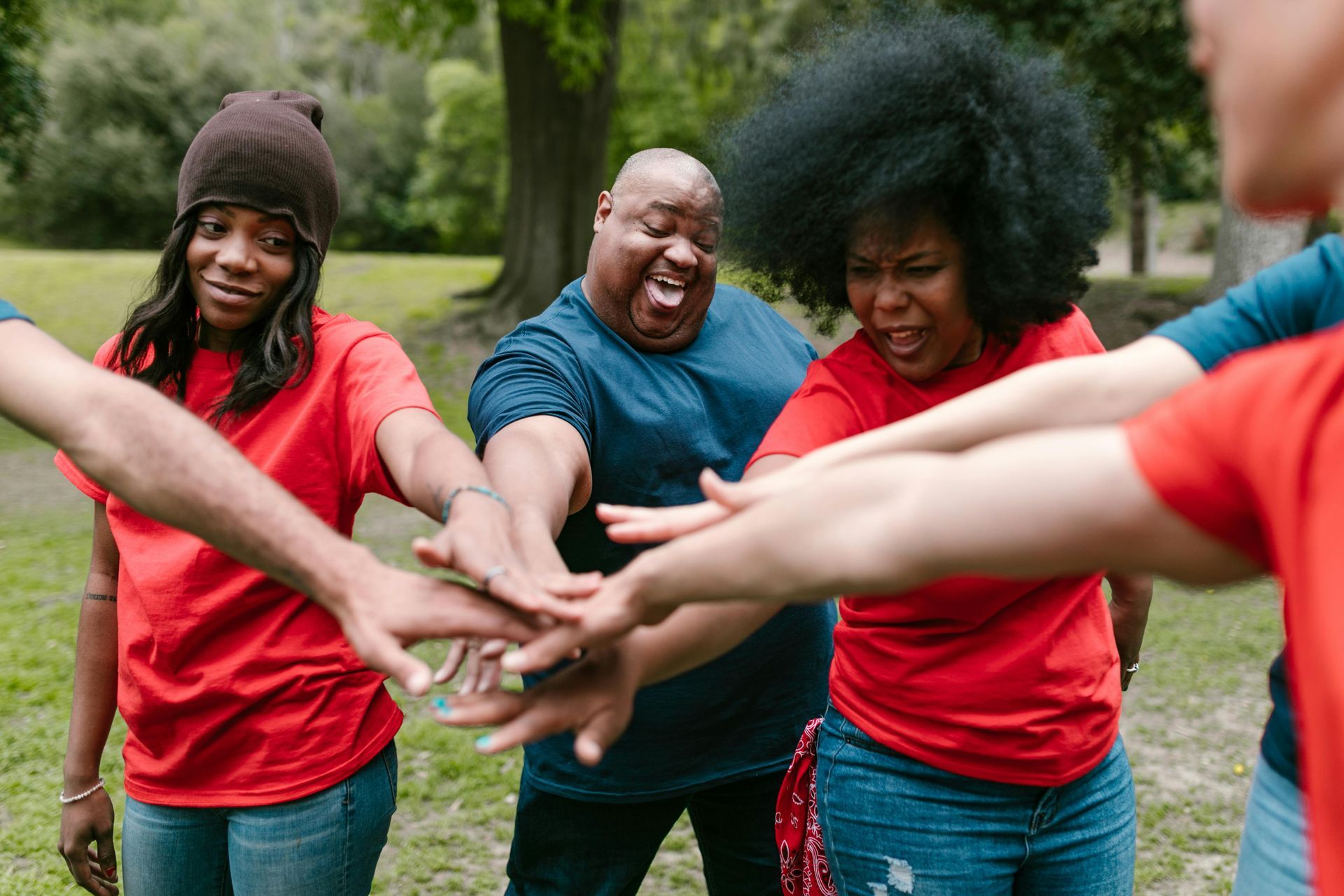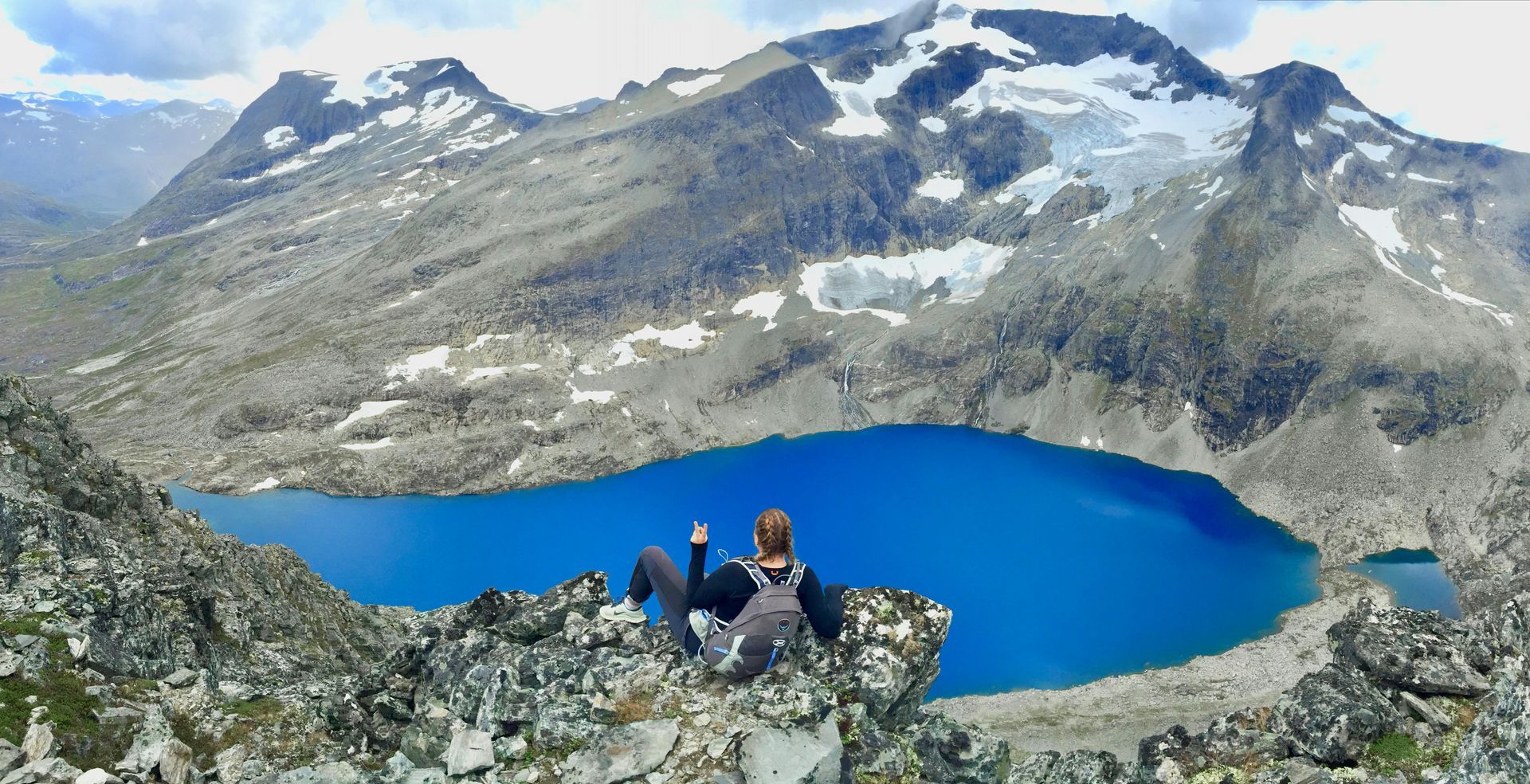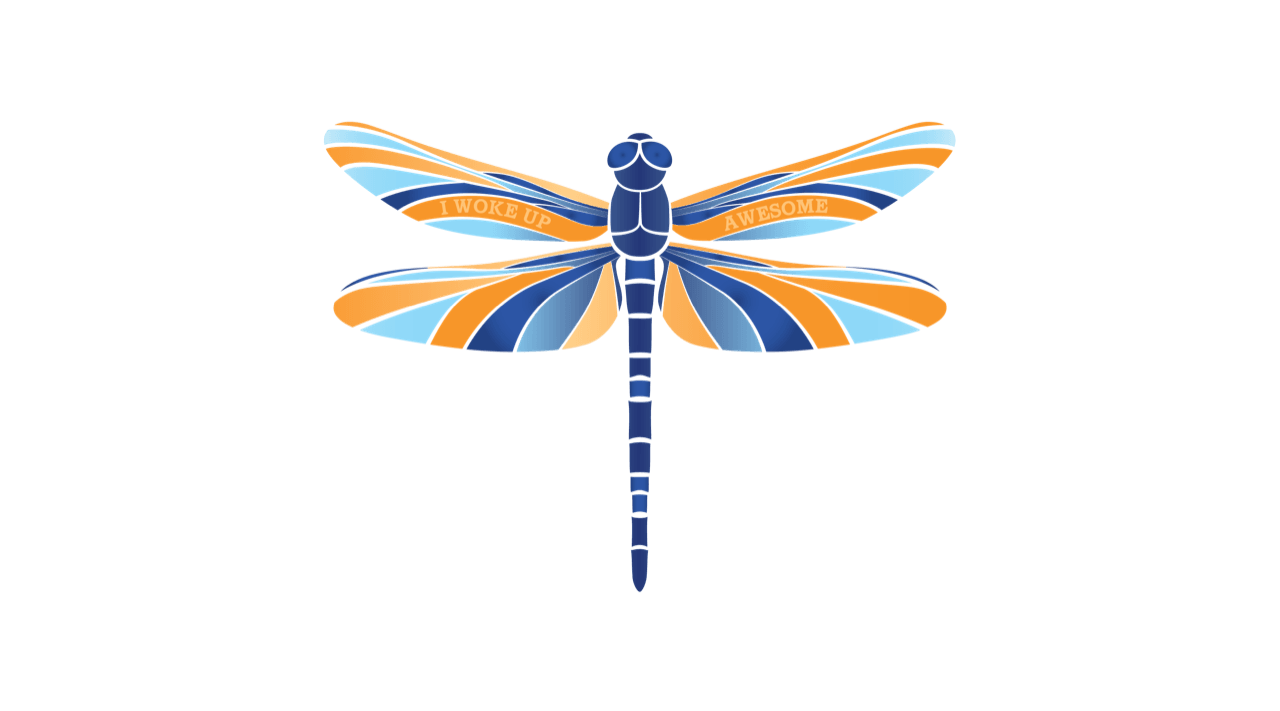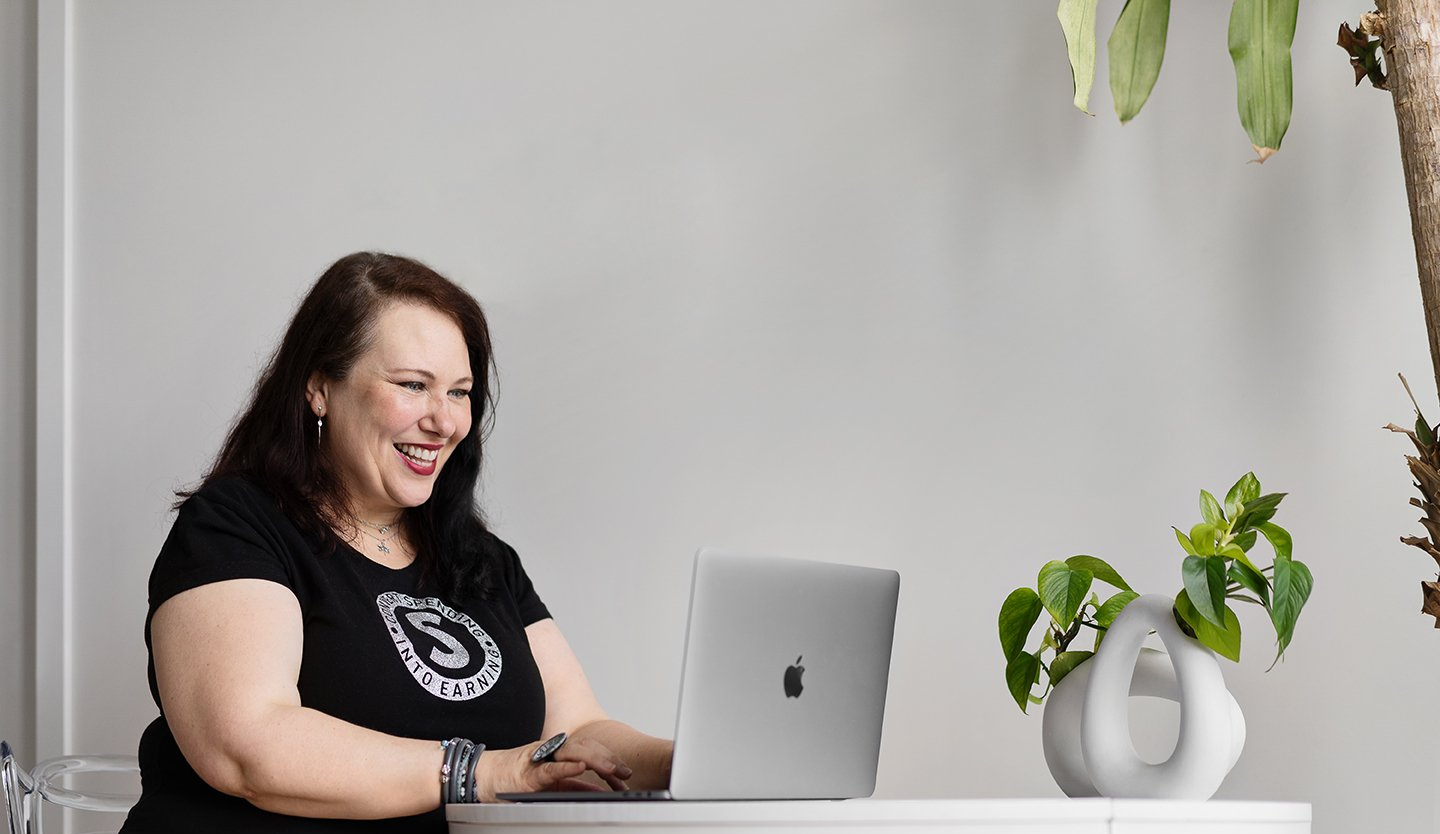DADS MUD with Sheldon Neal of Irvine CA on Trista's PL8STORY Podcast
This week we meet Sheldon Neal from Irvine, CA. His vanity plate story was featured in an LA Times article, chosen from thousands of entries. He’s a retired IT Project Manager who fills his time now with working on cars, lawn bowling and exploring the beautiful areas of the California coast. Sheldon grew up on a farm and shares some fascinating information about how farming has changed since his childhood. He also shares how a physical trait played a role in his self-worth growing up and led him to realizing one important thing we all share. This gave him self-confidence and I think you will agree, a good life.
Share this Episode:
Full Episode Transcript:
DADS MUD
[00:00:00] Trista, Host: Welcome to this week's episode of Trista's PL8STORY (Plate Story) Podcast. I'm Trista Polo from iwokeupawesome.com and I am your host. Each week, we learn the story behind that vanity plate. You know, the one you saw driving down the road... what did it say? What did it mean? Why did they choose it?
This week we meet Sheldon Neil from Irvine, California. His vanity plate story was featured in an LA times. Article chosen from thousands of entries. He's a retired it project manager who fills his time now with working on cars, lawn bowling, and exploring the beautiful areas of the California coast with his wife.
Sheldon grew up on a farm and share some fascinating information about how farming has changed since his childhood. He also shares how a personal physical trait played a role in his self-worth growing up and led them to realizing one important thing. We all share. This gave him self-confidence and I think you will agree from hearing his story a good life.
We'll speak with Sheldon in a moment, but first I have some exciting news to share. I have been chosen by Facebook to be a digital creator. If you don't already, I invite you to follow me there for lots of great short form video content about self-worth positive mindset and plenty of laughs. As of this recording, I'm the only Trista polo on Facebook. So I should be easy enough to find.
In the meantime, let's go meet Sheldon and hear the story behind his vanity plate. Dad's mud.
[00:01:34] Trista Polo: Welcome to this week's episode of Trista's plate story podcast. I'm here with Sheldon Neal. His plate is DADS MUD. He's from Irvine, California. Welcome Sheldon. Great to have. Yeah, absolutely. So DADS MUD. Now this is a plate that was featured in the LA TIMES article. So why don't you start by telling us a little about your plate and then we'll get into your experience in the article.
[00:02:02] Sheldon Neal: I grew up in central Illinois and there, most of the four wheel and you do is either snow or mud. So after I moved to California, still enjoy doing a lot of four wheel drive stuff, but did a lot of mud. Also, we were camping up in Big Bear one weekend when my younger son was probably seven or eight years old.
And so we had done a lot of trails during the day and throwing a lot of mud up on the truck. And as a Pathfinder. And so when he got back to camp, he went up to the fender and scratched in "my dad's mud" in the mud that was on the fender. Well, I, I saw it and I kinda got on him about, I said, you know, you shouldn't be doing that.
You'll scratch the paint, blah, blah, blah, blah, blah. So once we got home from that trip, I was washing the Pathfinder yang. I saw pinstriping scratches all down the side of it from driving through brush and stuff. So then I felt kind of guilty that I had gotten on him about it. So that's when I ordered the DADS MUD plate.
And it's. Been with me ever since that was probably 96. Maybe . And this is now the third vehicle I've had it on. So
[00:03:12] Trista Polo: awesome. And how old was he at the time? He was
[00:03:16] Sheldon Neal: seven or eight. Right.
It's something that I ordered, just so just to kind of ease his pain and let him know that I wasn't really angry about it, that it could all in good stride.
[00:03:31] Trista Polo: And that's great. That's great. Did you do a lot of those kinds of trips with your families?
[00:03:36] Sheldon Neal: Yeah, we did a lot. we would do mostly like tent camping probably once or twice a month when they were growing up. We run the boy Scouts, so we did hiking backpacking did a 20 mile hike with the boy Scouts one day. But then we've always had a four wheel drive. Of some sort. So we, we like going out, exploring in the mountains in the desert and you know, you can see a lot of things out there if you're, if you're willing to drive into hike that you won't see anywhere else.
And a cool, because now of course, both my sons are, are adults. They're like mid thirties, but they still enjoy going out camping and hiking. And, you know, so that's, that's been kind of a lifelong gift to them. Sure. Well,
[00:04:22] Trista Polo: that's great. Your vanity plate? His DADS MUD, but that's not the only vanity plate you have.
Is it?
[00:04:28] Sheldon Neal: No, I actually, I got four vehicles and all of them have some significance to their plate.
[00:04:35] Trista Polo: Well, we have to talk about that. So tell me about your other vanity
[00:04:37] Sheldon Neal: plates. Okay. So the I've got a Jeep Cherokee that The plate is KM6 Z M J, which is my ham radio license, my ham radio call sign. So the state of California lets you do that one for free.
If you've got your ham license and then I've got two other vehicles as 73 Chevy Vega and a 67 Nissan patrol. The vague I have EEK VEGA. And then the patrol is EEK PATROL and the long story around that goes back to early sixties in HRA drag racing, where the Chrysler Hemi was, was kind of the king of the drag strip.
And it was a large motor. So they called it an elephant motor. Along came the small block Chevy and NHR kind of changed their weight guidelines and that sort of thing. And small blocks should be made a lot of power for it sized. So it started winning at the drag strip. So they started calling it a mouse motor and especially Grumpy Jenkins was, was world famous for winning with the mouse motor.
He was the first one that actually put one in and won a lot of races in it. So they. The reason they came up with that is what's the only thing an elephant is afraid of is a mouse, right? So the hammies were afraid of the small black Chevrolet and in the Vega and in the patrol, I've got a small block Chevrolet in each of those.
So I call them EEK patrol because there was a mouse in it,
[00:06:09] Trista Polo: Eek a mouse. That's very clever. That's very clever. Cause you're into cars.
[00:06:17] Sheldon Neal: Yeah. I've heard that all my lives. Yeah.
[00:06:21] Trista Polo: Yeah. Very cool. I want to talk about the history of vanity plates in your family, because you sent me some pictures and you had this original plate, so I'll include a picture of it and the video version, but tell us a little bit about the history of vanity plates in your family.
[00:06:39] Sheldon Neal: And this was in the early seventies in Illinois. All automobiles, their plates ran two letters and then four numbers and trucks would run five numbers. And then the, the weight classification in a letter dad always had trouble remembering his license plate. So mom, you could, you could special order as long as it was in that same sequence.
So mom ordered Jan 2, 4 0 3, because he was called junior Neal and then 2 43 was the last four digits of their telephone. 7 3 6 2, 4 0 3. So he could finally remember his plate because it was junior Neil to 4 0 3, which was also funny because he was called junior. He and I used to bowl in a lot of tournaments together, you know, and so you'd go to sign in and they'd see.
Okay. Sheldon Neil junior, Neil. And then they'd always look at me and say, junior, what's your average. And I'd go now. He's the junior I'm I'm the Sheldon.
[00:07:43] Trista Polo: I love that. There's a history of vanity plates and license. Well, specialized plates, I guess. I don't know if you would call that vanity plates because I know vanity plates, weren't always a thing.
And this sounds like this was before vanity license plates became available.
[00:07:57] Sheldon Neal: And I actually had a truck at the time that I had a 683 9 B, which I lived in a town called D land and the zip code, there was 6 1 8 3 9. So just something else. And then when I moved to California, I had SMNEAL as my plate, which I, I didn't keep, I should've kept that.
[00:08:22] Trista Polo: Cause your middle initial is, is M
[00:08:25] Sheldon Neal: which growing up I didn't care for. But then as I got to be older, my grandpa who lived in Kentucky was Mort Allan now. Dad was just Mort Neal. That's where he got the junior. When he went into the army, he had to pick a middle name.
So he just picked junior. So it became Mort junior Neal. I'm Sheldon Morton, Neal and my older son is Matthew Morton Neil. So we've got four generations now of Mort
[00:08:51] Trista Polo: well, I actually worked for a Mort when I was w it was my first job out of college. I worked in this very high powered, busy brokerage office in the city where I near where I live.
And he was the nicest guy, just like huge heart, really, really great guy. He has since passed away. But the MOrt the name Mort means something to me as well. So I'm glad you shared what your middle initial was for. Yeah, that's very cool. So you definitely earned the right to be in a vanity license plate article, right?
Because of your vanity license plate and your, your specialized license plate history, but they probably didn't know that about you. So how did you end up being in this article?
[00:09:41] Sheldon Neal: Is hooked up with the LA times on Twitter. So he he's on their Twitter feed. And one of the journalists there who was actually a summer intern she's in college back east, somewhere Boston, I think. But she sent out a tweet that said I'm doing you know, arts and lifestyle article on vanity plates.
If you know of anyone. That, that has an interesting plate, you know, hook me up and we'll, and we'll talk. And my son's like, oh yeah, I get, I got your guy. For sure. So yeah, I emailed her and talked with her a couple of times and then she thought it was pretty interesting and we set up the photo shoot and did that at a little park in Placentia
Yeah, it was kind of interesting. I think it came out in November. Like the first part of maybe
[00:10:32] Trista Polo: yeah. November of 2021 is when it came out.
That's right. How has it been for you since the article came out? I mean, obviously I reached out to you as a result of the article. Have you had any other connections or contacts or opportunities as a result?
[00:10:47] Sheldon Neal: Nothing really serious. I've had guy that lose down the alley. I was actually out working on my truck and.
He's lived there almost as long as I have. He just thought and said, I saw your article in the, in the LA times and that's pretty neat. And then also somebody at lawn bowling club had seen it. And so we talked about at some that's really been about it and I think. Well, and, and I sent it to my sister and she was pretty excited about it.
So
[00:11:19] Trista Polo: yeah, it's pretty cool. I mean, listen, the LA times has millions of followers and a huge reader base. So it's, it's pretty cool. I don't know if that's quite all of your 15 minutes of fame, but you know, it's probably a couple of seconds worth anyway. That's
[00:11:33] Sheldon Neal: what I'm counting on. Yeah. This is like a minute.
I still got 14 left to use up. Right.
[00:11:41] Trista Polo: Exactly exactly. Now you mentioned lawn bowling. You're retired now, right? Yes.
[00:11:49] Sheldon Neal: Yes.
[00:11:49] Trista Polo: But you keep very busy.
[00:11:51] Sheldon Neal: Yes. Yeah. I like to there's just so much, so much fun stuff to do.
[00:11:56] Trista Polo: There's so much to do. You just don't even have time for all the fun stuff. There is. So lawn bowling, I know is one of the things you do, but I didn't know what that was when we first spoke.
So can you tell us what is lawn bowling?
[00:12:09] Sheldon Neal: It's similar to botchy ball. So you have. Lawn bowl which is a little bit bigger than a softball, maybe about that size. So you'll, you'll have four of those as a set and then you have a little white ball that's called the Jack. So you, you roll the white ball down to the to a spot at the other end.
And then essentially you're just rolling your bowls, trying to get them closest to the Jack. Now. And bace ball. I think they roll pretty straight. So you can try and make changes in lawn bowls. They actually have a bias built into them. So, so as it's rolling down and it starts to slow down, it'll turn one way or the other and they have different biases built into them.
So you can, you can buy a set of bowls that has, you know, very minimal bias where you can buy one. That'll really go sideways at the end and depending on, cause you can. Usually play either two people to a team or three people to a team. So depending on where you're playing, having a stranger bowl or our larger bias full can be advantageous.
If you're rolling first, you know, having the straight ball where you can just kind of go straight to the Jack is, is more advantageous. But if you're now rolling third, you know, and you've already got. What 16 bowls out there in the way. So now you may have to have a larger bias full, so you can kind of look around them and work your way back in.
So it's, it's fascinating game and, you know, very, very simple initially, but getting good at it is, is very difficult. I grew up doing, doing 10 pin bowling a lot, cause in winters in Illinois, you know, there's not a lot else to do. So for me, the biggest thing was, you know, I was, was figuring out what they call the weight, which is how far the bowl is actually gonna go, you know, cause you're on a contained course.
So I was always throwing it into the other end. It took me a long time to figure out how to throw the weight properly, but the place we play is in Laguna beach. And it's on, on a bluff overlooking the ocean. So it's just right on the California Riviera. So it's a beautiful place to play. And the people there are really friendly and nice.
So, I mean, it's just a very, a very pleasant thing to do.
[00:14:27] Trista Polo: That sounds like a lot of fun. And you're in the kind of weather that it, you can probably play all these.
[00:14:34] Sheldon Neal: Yeah, right after a rain, sometimes the grounds will be too wet to play, but, and then of course, if it gets below 60, we complain about how cold it is. We can, we can
[00:14:48] Trista Polo: being in New York. I'm just going to let that one go right by.
So you are retired, you're retired from it. Right? Tell us a little about what you did when you were working.
[00:15:01] Sheldon Neal: So I started out as a programmer. I'm actually writing assembler code way back in the day.
And then just sort of advanced through the rag ranks up through system analysts. And they got into project manager and then a manager. And it was, it was great fun most of the time, but as, as time went on What happened was as a project manager, they had the technology to automate delivery of, of a lot of things like databases and servers and that sort of thing.
So I got to where the, the technician delivering it could push a button and pretty much have your server ready, you know, within an hour which was great for the customer, but for the person running the project. You know, they could, they could get things delivered before I could even write the project plan.
And so as a project manager, you just fall further and further and further behind So my job got to a point where I figured I had to get out of there and go somewhere else. And that's where I met with, with my financial planner. And I said, you know, I got to get out of this place to my looking for a new job, or am I retiring?
And he ran the numbers and he said, well, you know, it's your current spin rate. Assume a conservative investment return. You said you're, you're probably good for money till you're 95. And I thought, well, I'm, I'm willing to roll the dice on that one. I'll I'll take a chance,
[00:16:31] Trista Polo: right? That's great that you had that set up for yourself. And how old were you when you retired?
[00:16:38] Sheldon Neal: 61?
[00:16:41] Trista Polo: That's young to retire. Yeah. Especially these days. So I have to ask, what advice can you give people who are younger, who would like to not have to live out their life? Earning who would like to have a financial advisor say, I think you can actually retire. Now, what advice would you give? Because clearly you made some good choices along the way.
[00:17:04] Sheldon Neal: I mean like everyone says, you know, to start are like, oh, Which I did not. And, and never tap into your investments, which I didn't follow that either. So that's learned lessons
[00:17:18] Trista Polo: so, so far we still can mess it up and actually be able to retire, keep going.
[00:17:22] Sheldon Neal: I think the biggest thing, if you're, if you're working for a corporation, You all, almost all of them have matching funds.
Well, that's, that's just free money, you know? So there you're, you need to take advantage of that. But additionally, I think To do the study and not be afraid to invest on your own. I did a lot of study on the stock market and, you know, try it a lot of different methods to see what would actually work.
And in the long run, then I had pretty good success at investing in individual stocks. But I did read a lot about, you know, cause there there's. Different ways you can go about investing in the market. You can do, you know, value investing, which is where, when you do the research on a company and kind of find out, okay, Companies that are under priced, according to their value.
You can also look at more technical analysis, which is really just watching how the stock is behaving in the market and looking for trends where people are looking to buy that stock. I think either way works fine. You just have to kind of pick whatever method works best for you and then, and then manage your money.
Well, you know, there's, I think that's one of the bigger things is. If, if you invest in a stock and you see a start to go down, don't wait forever to get rid of it. You know, because as, as a stock falls you know, if a stock falls 10%, it's got gain 15% to get back up to zero. So you kind of lose track of that.
You know that as, as the stock loses value, it takes a lot more to get it back up. So cutting your losses quickly, I think is important. And then you add long, you know, the longer term you can do it the better. And I think the stock, market's a scary thing to a lot of people, which is why I say it's it's it's I think the more you can read and understand about it and understand the workings of it you can get more and more comfortable with it that in managing money, we don't take big losses, I think is the biggest.
[00:19:23] Trista Polo: That's really great advice. Do you still invest today or are you sorta just riding out the work you did in the past?
[00:19:30] Sheldon Neal: I'm sort of writing, I turned it over to the professionals, you know, so I've got God we're just invested in, in like mutual funds now. Although I did, I did buy apple just before it's split, just because I never had a stock split before.
So. So that was just fun.
[00:19:50] Trista Polo: So you're married. You have kids. Tell me about your wife. How did you meet what's that a meet? Cute. Since you're in LA area, we got to talk about the meet. Cute.
[00:20:00] Sheldon Neal: I grew up in central Illinois. On a farm, she grew up on the south side of Chicago. Her dad worked for the city. He was a carpenter for the city of Chicago.
So he had to live within the city confines within Chicago proper. So he lived in the farthest south, like the last street in the city proper before you hit suburbs. So she grew up there. She was married and moved out here, like in the late seventies. I think. I moved out here in 81. Went to programmer school, got a job doing programming.
There was a group of us that used to go out on Friday nights to bars and just kind of hang out. She was one of that group. I actually ended up working for her for a while. And then we started, there's a big racquetball club, you know, it was a part of our office play. And so I started playing racquetball with some of the people and one of the girls that was much better than I said, you know, I know somebody that's about the same level as you, you should, you two should play.
So she and I started playing racquetball together. And then. Afterwards, we would sit and talk for like an hour or two, and that just kind of evolved and evolved. And eventually got a little more romantic and I said, but you're married and her marriage hadn't been good for quite some time. So Patty eventually went away and then.
We got married and we're still at it. So that was
[00:21:37] Trista Polo: in your living happily ever
[00:21:39] Sheldon Neal: after. Yeah, that was in November of 85. We got married.
[00:21:46] Trista Polo: Awesome. And how is she also we're tired or she still works?
[00:21:52] Sheldon Neal: So she actually retired a year before I did And I had never really thought about retiring until I went to her retirement party. I'm sitting there going, Hmm, this is interesting.
And then in that year I got a new assignment that was got more and more difficult as, as it went. This is kind of the same thing when when she was, you know, at the point where you, you kind of dread Sunday afternoon because you know, you have to go back to work on Monday. So at that point, we met with our financial advisor and he said, yeah, you know, you're good.
And you know, as long as Sheldon continues working this long, blah, blah, blah, blah, blah. So yes, he retired. It's sad, but then yeah, a year later things had changed again. And we were able to pull it off.
[00:22:33] Trista Polo: So you do a lot of stuff you're keeping pretty active with your retirement.
Do you enjoy retirement together or do you kind of have your own things that you do?
[00:22:41] Sheldon Neal: Mostly together we do the lawn bowling lawn. Bowling is probably the most frequent. We used to travel a lot, but that's kind of been put on hold over the last couple of years. I like, I still like to do 10 pin bowling, which she does not like, and I was in a league up until the pandemic hit, but I, I haven't gotten back into that yet because that's all indoors.
Of course. We. I don't have, that's the only trips we've done the last couple of years. We've been up into wine country a couple of times, actually more than a couple four or five, like Napa Sonoma, and then Santa Barbara. You know, so just going up there, like for a week or so, and, and staying in a bed and breakfast, going to wineries, doing some hiking.
So we do a lot of.
[00:23:28] Trista Polo: Lovely.
So you mentioned a couple of times that you grew up in Illinois. And when we in, we had talked before this, that was a pretty interesting childhood. You were, you were on a farm, right? You grew up on a farm. Yes. Yeah. Yeah. So tell me a little about that.
[00:23:47] Sheldon Neal: So yeah, it was a corn and soybean farm. Most of the.
Lives outside of a little town called Weldon weldon's a town of like 450 people. That's what people used to call me, Sheldon from Weldon. But yeah, it was like I say, corn and soybeans.
I think one of the things that we talked about was, was the sort of the evolution of agriculture. Cause my, my dad grew up in Kentucky and Eastern Kentucky and they were, they were primarily tobacco farmers which was, you know, highly manual at the time. By the time he grew up, I think they had, had actually stopped growing tobacco on their farm, but they had a tobacco base that you could sell to another farmer so they could grow it, you know, in better ground kind of thing.
But when dad first moved up to Illinois, They were still picking corn by hand, you know, so you'd have a horse-drawn wagon that you'd walk in front of and snap off the ears of corn and throw them back into the, the wagon which then made you a very good softball pitcher and a very good horseshoe thrower because you had that two dad was always good at those also. But it was, as I was growing up, then we had a two row tractor drawn corn picker that would, would automatically, you know, pull the corn on the cob and throw it back into a wagon. And then we would load that into the corn crib that it would sit there for the winter and dry out.
Then you'd have paid people to come out and, and shell it off the cob and they'd take it to the grain elevator. Eventually that again, involved into what they call now, a combine, which, or actually at the time, dad called it a picker. Scheller because now you could go through with one machine that would take in four rows and pull it off on the cob and then actually shell the corn off and put that in a hopper and throw the cob out the back.
And I, I remember dad being so fascinated, you know, he could just stand there and watch that. And at the time, I don't think I really understood why it was so fascinating to him, but, but to be able to go from, you know, hand picking. To just driving this machine that now suddenly you're just dumping corn, shelled, corn into your truck to drive to the elevator was just such a leap technologically, I think for him that he remained fascinated by it.
And since I've left now with, with computers and GPS units and all those all sorts of sensors, they have Now going through the field on the combine, it's, it's measuring the yield as you go through and mapping that out on a field. So you can see where you've got, you know, higher yields, lower yields, and then adjust your fertilizer in the spring accordingly.
And the don't barely need to drive the tractors because they, a lot of them are GPS controlled, so they keep them sprayed on the row. Going to end up being like dad used to talk about the factory of the future, where I'm the only two living things in there will be a man and a dog and the man's there to feed the dog and the dog is there to make sure the man doesn't touch any of the equipment.
So that's
getting to, I think,
[00:27:08] Trista Polo: How much of the farming did you do growing.
[00:27:12] Sheldon Neal: Oh a lot. I was probably spending all day on a tractor from the time I was like 10 or 11 doing, doing more simple things there. There's, it's called Holden car and where you're just kind of driving up and down the rows when the corn's still pretty small.
So the amount of damage you can do is kind of minimal. When you get later in the year into the harvest, you know, then that's, that's more crucial operations. So I didn't really do a lot of that until I wasn't. Which I graduated high school, went off to college for a semester. I wasn't a very good student, so I went, moved to another college for another year and then worked as a mechanic for awhile and then came back and farm five more summers with dad, you know, as a mid 20 some any events.
Figured out that I wanted something else to do. You really have to love farming? I think to stay in it. I mean, it's a wonderful occupation if it's in your blood. But if not, it's, it's a lot of hard work which, you know, you need anything you're good at. There's a lot of hard work, but I just found some more interesting things.
Out here, especially in computers. Computer has always fascinated me. But yeah, and then all through growing up and we basically spend the summer walking beans cause you'd have soybeans. And the rows were 36 inches apart. When, when I was young, they eventually went to 30 inches. But during the summer you have to walk up and down the bean rows, cutting out weeds.
So we would spend from, I don't know, April or may through probably August when the beans would get up, you know, this tall and then start to tangle. So you end up doing more harm than good trying to walk through them. But. You spend most days out walking beans, and if you weren't walking beans, then you were mowing roadsides or, you know, doing something like that.
So, yeah, it was pretty constant working summer for sure. Yes. Yes. And dad always had probably a two or three acre garden. And so for awhile, I had a roadside stand set up that I would sell produce out of. And then on Saturday morning we would go We each had full-size pickup trucks.
So we would go out Saturday morning and pick sweetcorn cause he'd have like four acres of sweet corn. So we'd pick that and fill both pickup trucks full and then go down to Decatur and sell them at a farmer's market down there. And he always enjoyed that. Cause he, you know, gave him some, some time to show off his wares and interact with people.
He always liked that.
[00:29:43] Trista Polo: Very nice. Like you said, it's definitely a calling to take all of that on for sure. So one of the questions I always like to ask, because I do a lot of work with people that I work with on their self-worth is what, how has self-worth played a role in your life?
Growing up on a farm, going into something much more mind based than physical labor and now retiring early, how has self-worth played a role in your life?
[00:30:12] Sheldon Neal: I think growing up, as I mentioned to you last time I have, I have a small handicap. I've got a missing radius bone in my right arm. I think growing up in a largely physical based society with a handicap like that I don't know that that you're ever really conscious of it, but subconsciously you kind of feel like you're different.
So I think a lot of the ways I dealt with that back in my youth is that I would always kind of do more or, or. The funnier or more willing to take a risk or a drink more than the next guy to try and keep the attention away from, you know, the, the physical difference. And people would always say, you know, you, you think about it more than anybody else, which is, is absolutely true.
But it's different when you're in that spot. And I, you know, I did. Okay. Physically, I wasn't, I wasn't a good athlete, which, you know, small town like that, you know, star football player, star basketball player. They're, they're really the cool guys. Sure. That's
[00:31:18] Trista Polo: true in any place, not just a farming town,
[00:31:21] Sheldon Neal: But I could make people laugh.
So that, that kind of put me in a, in a different cool group. But then also got me in a lot of trouble sometimes, but yeah, you learn. But then I think you know, kind of wanting to strive for more we, we didn't grow up wealthy by any means. Like I, I always like to say I grew up a poor sharecropper's son and my wife kind of looks at me and goes what?
And I said, well, yeah, actually, you know, it was. Gave half the crop to the land owners and he took half of it, which is exactly what sharecropping is. And when I was born, he wasn't even a sharecropper. He was a hired man by the month.
So, yeah, when we were growing up, we didn't have a lot of money. There was one time, I don't know, I was probably seven or eight because I never really felt like we were poor until this moment. Mom bought me a straw cowboy hat at the mule barn in foresight and on the front of it, it said I may be poor, but at least I'm good-looking.
So, you know, I put this hat on and I looked up at mom, said, well, at least one of these things is true. And she's like now it's Sheldon on their book. And I was like, oh,
[00:32:28] Trista Polo: wait, I'm
[00:32:28] Sheldon Neal: poor. We are poor.
So I think that kind of, kind of pushed me to, to want to make some money somehow. So I occasionally would buy a, you know, Kind of thing off, out of the newspaper or off late night TV or that sort of thing, which none of those ever really panned out. But one, one consistent thing I saw in them is it would talk about, you know, getting your mind right.
To do this, you know, so whatever your scheme is, you have to be in kind of the right mind frame your mindset in order to be successful. And so then that sort of led to me, you know, reading more Self-help kind of books and, you know, pop psychology and that sort of thing. And I think that helped me build a lot of confidence and then just kind of trying some different things.
And then one day coming to the realization that virtually everyone is insecure. About something. And that, that kind of gave me a great comfort that, oh, I'm, I'm not the only one that is scared of doing stuff. Well, let's go try some more stuff then. And I think that then the more successes you have, you know, the more that just kind of snowballs.
And that's, that's been the case for me, you know, I've tried a lot of different things and had some success and, and have some failures, but then you just kind of say you know, I, I learned something from it. No. So that's what I would tell people on lawn bowling. I either won today or I learned something today.
You know, that's the only two results that come out of this. And so I think if you kind of approach everything with that sort of attitude, you know, you can, you can do some good things.
[00:34:13] Trista Polo: Yeah, I absolutely. You, you put that on top of anything and you'll end up successful because you won't quit from failure.
In fact, I would guess that's probably why you did well in the stock market. If you didn't make money on a stock, you learned something from that. And to get to the next investment and the next investment and ended up building, you know, a nice retirement for yourself. So, yeah, I think that's great to add to anything that you're doing in life.
Yeah, absolutely. That's awesome. Anything else you want us to know about you before we wrap up today?
[00:34:51] Sheldon Neal: What else I'm taking acting classes, which is fun.
And that's another thing too, you can under the covers to understand how the business works. I'm seeing that a lot now. I'm taking a screen act in class. And the teacher has worked a lot in the business, you know, so, so the way we, we do scenes and shoot them in class, and then he goes away for a week and they edit it and then, you know, shows us the scene afterwards.
It's, it's fascinating to learn how the process works. So I've been learning a lot about that. It's not always the first take.
[00:35:27] Trista Polo: That's right. I actually I've done a lot of improv acting, which I really enjoy.
It creates an opportunity for courage and the ability to just go with anything and help hold other people up. And you know, that whole say yes and see what happens. Yeah. Figure out how to deal with whatever happens next in the scene. I found that to be a lot of fun and it really stretched me as well.
[00:35:59] Sheldon Neal: I did a one evening improv workshop six months or so ago. It wore me out.
[00:36:06] Trista Polo: It is a little physical
[00:36:08] Sheldon Neal: yeah. Reacting back quickly. Yeah, that's part of what the teacher said. You know, that's part of the fun of it is I don't want you to think, you know, I want you to just react, but that's hard to do. That's something you have to train yourself to do. I think.
[00:36:22] Trista Polo: For sure if you spend too much time in your head, trying to think of the next thing to say, trying to be funny, trying to do it, then it will be terrible.
But if you let yourself go and just authentically trust the process and the rules of the game and whatever else is about to happen, and the other people that you're in the scene with, it can actually create some pretty magical stuff.
[00:36:45] Sheldon Neal: Yeah. You just got to get out of your own way.
[00:36:47] Trista Polo: That's exactly right.
Well, you're in the right town. You're in like right town to be able to pursue acting, even if it's just for fun and to explore it for your own internal and personal development.
Keeps you thinking and keeps your brain young that's for sure, right?
[00:37:05] Sheldon Neal: Yes. That's the goal.
[00:37:07] Trista Polo: Yeah. Awesome. Well, I always like to turn the table before we wrap up and see if you have a question for me.
Do you have a question you'd like to ask me before we finish up?
[00:37:17] Sheldon Neal: I am curious about, about your mechanism. So this is the story ran in the LA times. So how, how do you hook into that?
[00:37:28] Trista Polo: Well, I have had to be a little bit more creative since the pandemic, but it's a good kind of problem to have because instead of only finding plates in New York, I have had plates for almost all the states. I have a goal to have every state represented on, on the map for at least the U S. And so I have Google alerts for vanity plates and license plates, so I can stay up on what's going on.
That gets me access to additional people. And I've had interviews that were results of that. Certainly the LA times article. I use social media a lot. Instagram people will post themselves with their plates or tag somebody in the, in the picture.
I'm in a couple of Facebook groups where people post not only the plates they see, but also their own plates.
I really find vanity plates. Fascinating. I find the reasons behind why people choose them. Fascinating. So it's a fun hobby for me that always eventually ends up with a really cool conversation with an interesting person. Like I learned some great stuff today about, you know, your philosophy on investing and.
On the farming industry. Like I learned some very cool things today talking to you. So I really appreciate you being on and sharing your life story or at least a sliver of it.
[00:38:51] Sheldon Neal: Yeah. It's kind of fun for me to think back on those on those times.
[00:38:57] Trista Polo: Yeah, absolutely. And with that, I want to just say thank you so much, Sheldon for being on today and, and spending some time sharing a little bit about yourself and I wish you so much success.
Retirement, staying busy and lawn bowling and acting and all the fun stuff that you're into. I know that you shared with. When we spoke before that it turns out retirement is really your calling. Like you're really good at it. And it really is like what you've done best in your whole life
[00:39:30] Sheldon Neal: I've ever had.
[00:39:32] Trista Polo: Yes, exactly. And you would, you would endorse this as a career move for anyone, right?
Awesome. Well, I wish you and your wife all the best, enjoy time with your son and your grandchildren. And thank you so much for being on
[00:39:50] Sheldon Neal: sure thing. All right. Thank you.
[00:39:52] Trista, Host: Thanks for listening. Please subscribe to Trista's plate story podcast, share it, or leave a review. If you would like to nominate a license plate to be featured in a future episode or you have an interesting plate story news item to share with me, leave us a comment or visit plate story.com. That's P L number 8. story.com and give me all the details.
This is Trista polo wishing you well on the road to your next adventure.
I Woke Up Awesome Blog











